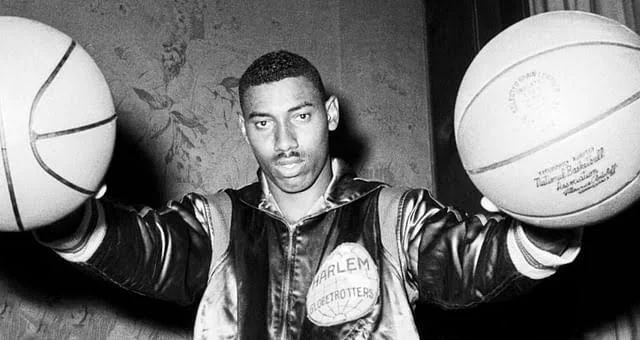
What Prevents Wilt Chamberlain from Receiving the Due Respect He Deserves?

Wilt Chamberlain, often regarded as one of the greatest athletes to ever play professional basketball, remains a towering figure in sports history. Yet, despite his incredible accomplishments, Chamberlain’s legacy doesn’t always receive the respect it merits. While many recognize his unparalleled dominance on the court, several factors have contributed to the underappreciation of his career.
One of the most significant factors is Chamberlain’s career rivalry with Bill Russell. While Chamberlain posted staggering individual statistics, Russell was the cornerstone of the Boston Celtics’ dynasty, leading his team to 11 championships. In contrast, Chamberlain won just two NBA titles. The narrative of Russell as the ultimate team player and winner, juxtaposed with Chamberlain’s perceived focus on individual accolades, has led many to downplay Wilt’s greatness.
Championships often serve as the ultimate measure of a player’s success, and Chamberlain’s relative lack of titles has unfairly diminished his legacy. The idea that Russell “owned” Chamberlain in their head-to-head matchups further clouds the appreciation of Wilt’s contributions, even though their personal statistics tell a different story.
Another factor that hinders Chamberlain’s legacy is the era in which he played. Chamberlain’s career spanned the late 1950s to the early 1970s, a time when the NBA was not as widely followed as it is today. Some critics argue that the competition Chamberlain faced was less challenging than that of later eras. The league had fewer teams, and the overall level of talent was perceived to be lower.
This argument is often used to diminish Chamberlain’s records, such as his iconic 100-point game and his averaging 50.4 points per game for an entire season. While it is true that the NBA has evolved, it is unfair to discredit Chamberlain’s achievements because of the era in which he played. Dominance is dominance, regardless of context.
Wilt Chamberlain’s statistics are almost mythical in nature. Averaging 50 points and 25 rebounds per game in a season, leading the league in assists as a center, and scoring 100 points in a single game are feats that are hard to comprehend. However, these extraordinary numbers may have contributed to a perception of Chamberlain as a statistical anomaly rather than a basketball player with a balanced game.
Many fans and analysts may view his records as unattainable and, therefore, somewhat disconnected from the reality of the game. This perception can lead to an underappreciation of the player behind the numbers. Chamberlain’s versatility and skill set often get lost in the sheer magnitude of his stats.
Wilt Chamberlain’s personality and public persona also played a role in how he is remembered. Chamberlain was known for his brash confidence, often making bold claims about his abilities and accomplishments. While his confidence was justified, it sometimes rubbed people the wrong way and contributed to a perception of him as self-centered.
Moreover, Chamberlain’s well-documented personal life, including his claims about his relationships, has overshadowed his basketball legacy. These off-court stories have sometimes detracted from the focus on his incredible achievements as a player.
The evolution of basketball has also affected how Chamberlain’s legacy is viewed. Today’s NBA is vastly different from the league in which Chamberlain played, with the modern game emphasizing speed, three-point shooting, and positionless basketball. Chamberlain’s game, which relied on physical dominance in the paint, is less relatable to the current generation of fans and analysts.
As the game has evolved, so too have the standards by which players are judged. Chamberlain’s style of play may seem outdated to some, leading to a lack of appreciation for just how revolutionary he was in his time.
In the current age of sports media, the legacies of athletes are often shaped by documentaries, interviews, and highlight reels. However, Chamberlain’s career, which took place before the explosion of sports media, has not been documented as extensively as those of other legends like Michael Jordan or Magic Johnson.
The lack of widespread visual documentation of his career highlights makes it harder for new generations of fans to connect with Chamberlain’s greatness. Without the constant media reminders of his dominance, Chamberlain’s legacy can easily be overshadowed by more recent stars.
Wilt Chamberlain’s legacy is one of extraordinary accomplishments and unmatched physical dominance. Yet, several factors—including his era, his rivalry with Bill Russell, and the evolution of the game—have led to his achievements being undervalued by some. While he may never receive the universal respect that some of his peers enjoy, those who delve into the history of the NBA will always recognize Chamberlain as one of the most dominant forces the sport has ever seen.
Chamberlain’s place in basketball history is secure, but it is up to fans and historians alike to ensure that his contributions are properly appreciated and celebrated.
Leave a Reply